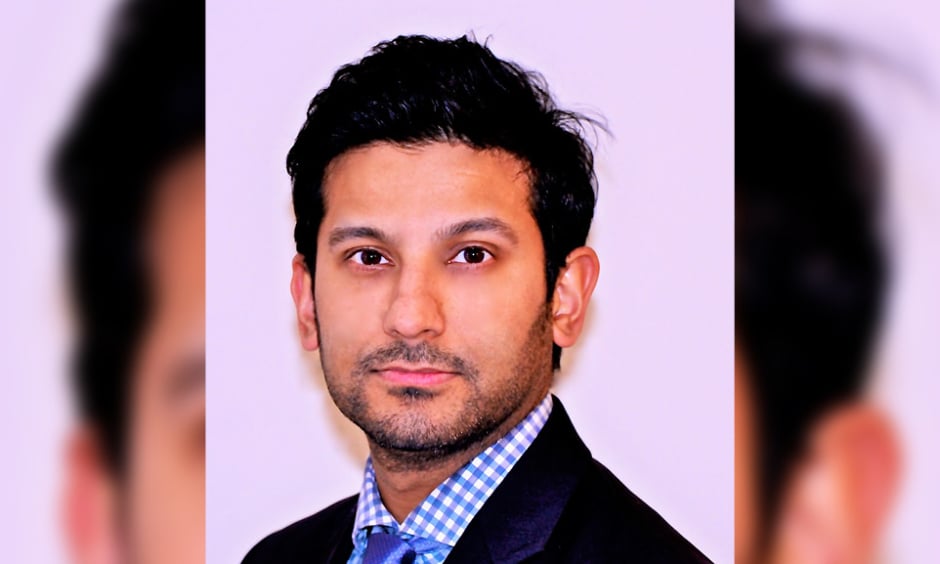Doctor Manish Chand | Consultant Surgeon at University College Hospital London
Associate Professor of Surgery at the University College London
![]()
What were you most excited for leading up to the International Colorectal Disease Symposium in Israel this year?
I thought it was a great opportunity for surgeons from around the region and the world to come together and listen to expert speakers in an informal environment. Having moved from its usual location in Fort Lauderdale to Jerusalem this year, a new cohort of delegates was involved, and I think that can only be good for the meeting and the delegates themselves, as expertise is shared from different regions of the world.
Can you talk about the importance of fluorescence in colorectal surgery?
One of the key talking points at this year’s meeting was fluorescence-guided surgery, and in recent years it has become evident that fluorescence really is a surgeon’s best friend. There are so many different ways it can be used; for us, as colorectal surgeons, the most popular application may be for determining bowel perfusion, as there is accumulating evidence to show its beneficial application for reducing anastomotic leakage. We still await longer-term results and findings from randomised controlled trials, however it certainly appears that using fluorescence decreases leak rates.
Beyond bowel perfusion however I believe fluorescence can be used in so many different ways in surgery, from identification of anatomy, to actually looking at pathology. For example,
I could administer a dye which specifically targets cancerous cells in the bowel and identify what I need to excise in a more precise manner than has ever been allowed before.
What sort of implications will virtual meetings hold for the surgical field?
One of the things we have seen in recent years is that the traditional model for holding surgical meetings is evolving. Where once you would have to travel a certain distance, pay a registration fee, and find study leave for such meetings, this model is changing with the increased availability of online materials and the use of technology platforms.
Recently, we here at UCL alongside our collaborators in the AIS Channel and Cleveland Clinic Florida have been putting on a digital meeting that attracts 25–30,000 live viewers, and this is a meeting of no delegates: we have faculty from around the world either sending in their recorded lectures, or joining us here in attendance within a live television studio environment to put on a live broadcast. This allows people from all over the world to tune in at any time they wish for free.
This democratisation of the surgical conference represents a real shift that we are seeing. Of course, these will never fully replace delegate-attended meetings such as the one in Jerusalem, which still hold real value; however, interspersed virtual meetings negate a lot of the practical nuisances associated with travel and time off.
Can you comment on the evolution of laparoscopy and how it has become standard-of-care in colorectal surgery?
Much of my work as a surgeon involves colorectal cancer, and recent improvements in this field have in fact been two-fold. The first has been the significant improvements in cross-sectional imaging and MRI so we can plan our surgery more effectively, and the second has been the ability to perform these procedures in a minimally invasive fashion. Often we think of open surgery being the gold standard, but I think at least with colon cancer we have reached a point where laparoscopic surgery is the gold standard.
The new techniques of trans-anal total mesorectal excision (TATME), and of course robotics which has been around for some time now, are certainly being adopted more, and I think without a
shadow of a doubt that this is where we are heading in the future. We’re not going to be doing open surgery or straight laparoscopy to the same degree as now in 50 years’ time; we’re going to be using ‘smarter’ tools such as robotic and image-guided platforms, and the aim now is to determine how to do this in a cost-effective and clinically appropriate manner.
How important an impact has mentorship had on your professional career?
It is important for young and newly appointed consultant surgeons to have a mentor. I think it can be difficult to traverse the career pathway on your own, and a mentor can give you mental, emotional, and in a surgeon’s case, physical guidance to help you on your way. In my career, certainly Richard Cohen, Steve Wexner, and Antonio Lacy have been very influential and helped through times of difficulty and uncertainty. Mentorship can be highly valuable for young and experienced surgeons alike, and these individuals need not be from your same institution: mentors can be individuals whom you respect from other institutions. It is key however in this somewhat treacherous world of surgery to have someone who can help and guide you.
Finally, what are your impressions of the work EMG-Health is doing and how it can benefit yourself and other professionals in the field?
I think the work is tremendously exciting. I think having another platform that has rich multi-media content for surgeons to use as a reference point is certainly the way forward for the world that we live in. Historically surgeons would need to go to the library and trawl through articles and textbooks under inconvenient circumstances, so having an online platform whereby one can access a whole variety of content is undoubtedly valuable. We are all time-poor now: in the theatre, to learn, and in our social life. Having information on demand is not only useful, but essential for the working surgeon. EMG-Health’s work is exciting as it brings together experts from different fields and provides the traditional open-access journal model alongside more multi-media content. In short, I’m really looking forward to seeing the work they can produce in the next few months and years.








